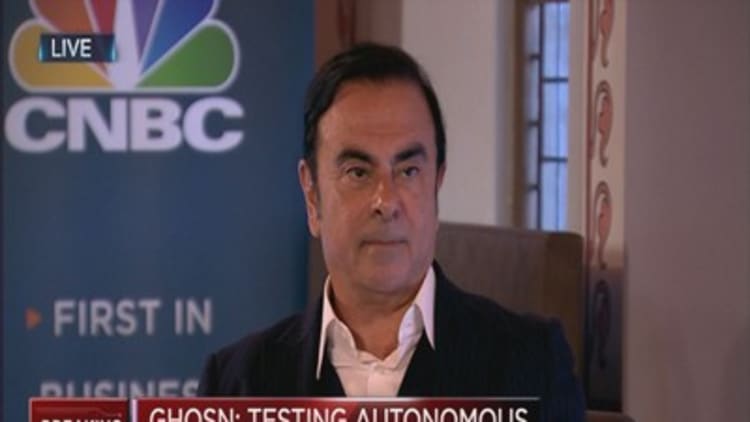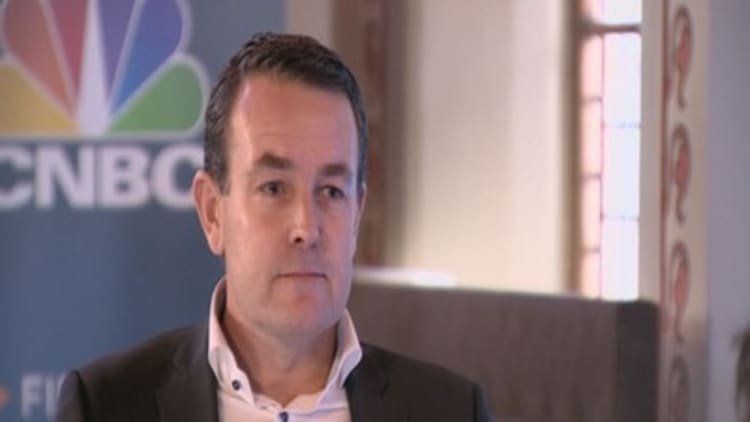
The driverless car will become like your mobile phone: Something that you'll much rather own than hire, leading carmakers told CNBC as they face the threat that ride-sharing apps such as Uber could disrupt the autonomous car space.
Last year, Uber, the world's most valuable start-up, announced it was developing autonomous vehicles. If you could order a self-driving taxi at the tap of a button, why would car ownership be necessary?
But two major auto giants aren't worried and said that while Uber will enjoy great success, the connected car will become a consumer device that people will want to own.
"If you think that you have a car only for mere cold transportation, then you can take bus, you can take a taxi, and Uber is going to develop the taxi system…then yes, right, you don't need to buy a car," Carlos Ghosn, the chief executive of Renault-Nissan, said during a CNBC technology event at Davos last week.
"But people use a car for many other things and with the connectivity coming, the car is going to become a kind of working space, it's going to become a living space. Because if in the car you can connect, interface, video conference… it becomes your own space, you're going to have your own photos, your own email, your own music, your own calls, your own everything, it becomes like your iPhone, you want something belonging to you."

As well as the connected experience of cars, the use cases will continue to differ in the future. While Uber might be useful for "megacities" in which parking and congestion is a problem, other areas will still see car ownership continue, according to one Volvo Cars executive.
"You have a different transportation need when you go from the cities to the suburban areas and if you go to the countryside you have a different transportation need. And I think this is also part of the development of the automotive industry and ecosystem…addressing various needs from the consumer perspective," Klas Bendrik, chief information officer at Volvo Cars, told CNBC.
Volvo recently struck a partnership with Microsoft to use the U.S. company's HoloLens augmented reality headsets in its showrooms to help people buy and develop driverless car technology.
Driverless by 2018?
Analysts and carmakers are optimistic on the prospects of autonomous vehicles. Juniper Research forecasts almost 20 million fully autonomous or self-driving vehicles on the road by 2025, with consumer adoption set to take off in 2021.
Some however are predicting a much quicker adoption. Recently, Tesla boss Elon Musk said the company's cars could pick you up by themselves from the other side of the country by 2018.
But not all share Musk's very short timeline. Ghosn said that while Renault is testing autonomous vehicles in Palo Alto, California, regulation and reliability of the cars could stop them getting into consumers' hands any time soon.
"I'm a little bit skeptical when a carmaker…says we are going to be able to sell cars, autonomously driven, before 2020, in 2018, when the regulation is not ready. And we know the technology is still in a prototype phase," Ghosn said.





